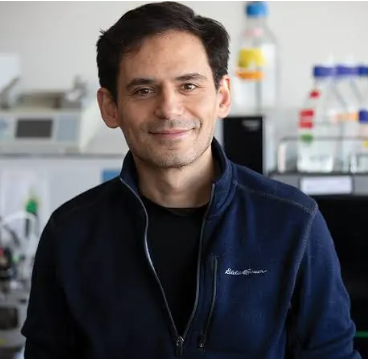Website
View Website
- Physiological and metabolic responses of <em>Zymomonas mobilis</em> to lignocellulosic hydrolysate
- Thermodynamics shapes the <em>in vivo</em> enzyme burden of glycolytic pathways
- Reconstruction of a resource balance analysis model of Clostridium thermocellum examines the metabolic cost of glycolytic and cellulosome enzymes
- Gut microbes mediate the synergistic effects of dietary cholesterol and saturated fat in driving fibrosing MASH
- Portal bile acid composition and microbiota along the <em>murine</em> intestinal tract exhibit sex differences in physiology
- Species-specific gene regulatory network rewiring mediated by the GATA-type regulator NsdD in <em>Aspergillus</em>
- ACAD10 and ACAD11 enable mammalian 4-hydroxy acid lipid catabolism
- A deoxynucleoside triphosphate triphosphohydrolase promotes cell cycle progression in <em>Caulobacter crescentus</em>
- A shared alarmone-GTP switch controls persister formation in bacteria
- Pyruvate kinase directly generates GTP in glycolysis, supporting growth and contributing to guanosine toxicity
- Thermodynamics shape the <em>in vivo</em> enzyme burden of glycolytic pathways
- Allosteric regulation of pyruvate kinase enables efficient and robust gluconeogenesis by preventing metabolic conflicts and carbon overflow
- Investigation of Bile Salt Hydrolase Activity in Human Gut Bacteria Reveals Production of Conjugated Secondary Bile Acids
- A shared alarmone-GTP switch underlies triggered and spontaneous persistence
- Pyruvate Kinase Directly Generates GTP in Glycolysis, Supporting Growth and Contributing to Guanosine Toxicity
The metabolic activities of microbes have shaped the evolution of life on Earth, they touch every aspect of our daily existence and have an enormous impact on the environment, agriculture, biotechnology, and human health. Our research program seeks to generate a quantitative and holistic understanding of how metabolic networks are regulated in microbes. We integrate systems-level approaches, especially LC-MS-based metabolomics, with computational modeling and genetic engineering to understand how metabolic fluxes are controlled and how microbes adapt their metabolism in response to environmental challenges and during developmental processes. My laboratory has two several research areas, including metabolic regulation in biofuel producers, metabolic remodeling during biofilm development, biochemical activity of the gut microbiome.

